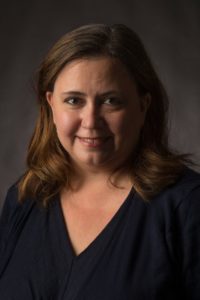Faculty Senate Chair-Elect Dr. Laura Hatcher, representing Faculty Senate Chair Dr. Diane Wood, presented on overview of the Senates activity this fall at the Board of Regents meeting Sept. 25.
This semester, the Senate convened this fall with several challenges. In addition to being the first Senate at Southeast to begin a new school year during a pandemic, the Senate was also tasked with assisting in the academic prioritization process.
In addition to supporting their colleagues as they learned to use new technologies and format their classes in new ways to meet classroom safety guidelines, Senators from throughout campus are also providing a voice for faculty this fall semester. The Senate gathered comments from all academic departments on campus and provide the Emergency Response Team with a broad overview of how the opening of fall semester proceeded. This also provided the Senate an opportunity to provide feedback about the needs of the faculty and students for the spring semester.
During the process of gathering feedback from the faculty, the Senators and their departmental colleagues expressed a great deal of gratitude for the hard work of particular offices and individuals on campus, Hatcher said. Faculty also expressed appreciation for the hard work of the members of the Emergency Response Team, the university administration, Facilities Management, the Department of Public Safety and the Dean of Students, Sonia Rucker, for their efforts to implement and maintain health and safety measures.
Faculty are also appreciative of students for abiding by safety regulations on campus and for being patient with their professors through new technology and new classroom practices, Hatcher said.
Additionally, the Senates Executive Committee and committee chairs continue to have an excellent working relationship with the administration and especially with Provosts Office, she said. Dr. Mike Godard has been an excellent leader for Academic Affairs, and a mentor for all faculty across campus.
The major task of Faculty Senate this fall as been the process of academic prioritization, and the Faculty Senate Executives decided to slow its legislative work so that all Senators could focus on this process, Hatcher said.
During its regular session meeting on Oct. 28, the Senate will suspend its regular order of business to convene as a program review committee. All six legislative committees, including the Johnson Center committee, will be involved in this program review process.
Hatcher said the Senate has worked closely with Godard and Vice Provost Dr. Doug Koch on the academic prioritization process, and together, have developed guidelines for the committees as they review the reports they receive. The Senate Executives and the legislative committee chairs have already received training on how to evaluate the program review reports. The senators on the committees will receive training in the upcoming weeks. Each of the committees will be tasked with reviewing around twenty prioritization reports that have been submitted by programs throughout campus. Within fifteen days, the Senate will complete its reviews and deliver its reports on each of these plans to the Provosts Office for review.
The Senate regular order of business will resume on Nov. 18.
Opening the campus, learning to teach during a pandemic, and working through the prioritization process has been the bulk of the Senates work so far this semester, concluded Hatcher. The Senate looks forward to resuming regular business.
The presentation was followed by a discussion among the Board regarding student engagement and how faculty are utilizing new technology and pedagogy in the classroom.
In response to a questions about how the pandemic has impacted students learning and how faculty have embraced new learning modes, Hatcher said it has been stressful and there have been challenges, but faculty are attempting to engage interactively with students.
Hatcher said the Center for Teaching and Learning (CTL) and Provosts Office have been extremely helpful and provided many resources and training. Upcoming mid-term exams provide faculty opportunities to assess student progress and evaluate classroom outcomes.
Additionally, faculty have found new applications and processes that will be used in their classrooms after the pandemic, and discussions are already taking place on ways to make positive changes for the future, Hatcher said. Now, as before, faculty remain committed their students’ success and provide a quality education.
Regents thanked the Senate and faculty for their patience during these changing times, and their continued support of and dedication to their students.
